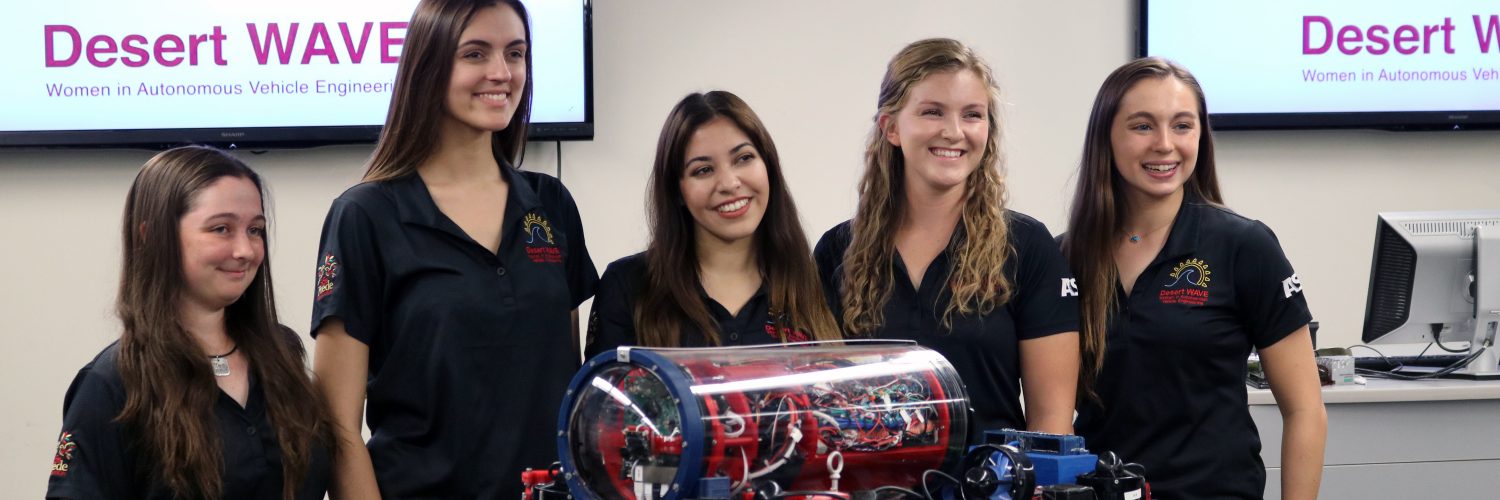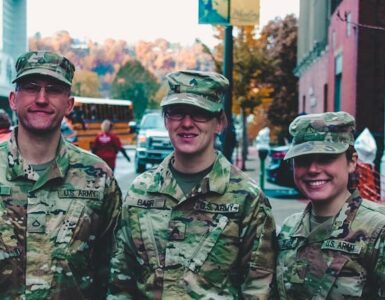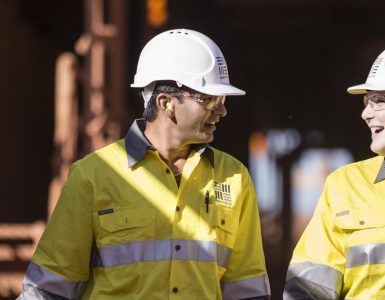Desert WAVE, an all-female underwater robotics team established by the Si Se Puede Foundation and Arizona State University, placed third in the 22nd annual International RoboSub Competition.
The competition was Desert WAVE’s (Women in Autonomous Vehicle Engineering) first time competing and they won third against 55 other teams from more than a dozen countries.
“It’s exciting,” Daniel Frank, a lecturer at Ira A. Fulton School of Engineering and Desert WAVE faculty advisor, said. “I always knew that they had the potential to do something like this, we just didn’t know it would happen so quickly.”
Originally placing fifth in semi-finals, Desert WAVE moved to third in the final round, winning a $3,000 prize and making them the highest-ranked team from the United States.
According to the team, their original goal was to place in the top fifty percent.
“Our goal was to not perpetuate stereotypes that girls are not as good at engineering. So the fact that we even made it into the finals was crazy…I think all of us were shocked. It was really exciting,” ASU Sophomore Bridget Koehl said.
Hosted by the Office of Naval Research and RoboNation in San Diego, the competition asked the teams to design and build an autonomous underwater vehicle.
Desert WAVE has been preparing for the competition for months now.
“Desert WAVE prepared for the event by meeting weekly for several months with their mentors, engineering lecturer Daniel Frank and Faridodin Lajvardi of the Si Se Puede Foundation. Together they turned the tide in their favor by building relevant industry-related skills in computer-aided design, 3D printing and teamwork,” ASU reported in ASU Now.
The team of students built a prototype of a submarine-like robot with the main goal of developing technology that can detect underwater bombs, help discover deep-sea life and look through underwater wreckage.
Beyond teaching the girls valuable engineering skills, the club teaches them how to work in teams as well as confidence.
“I think probably the biggest thing is more confidence, especially working in teams… It’s given me the confidence to say ‘I’ve done stuff like this before, I know what I’m talking about,’” Koehl said. “But being part of this, it’s just a good way to let girls develop their skills, get experience without having to face the hardships that come with being the only girl on your team or being treated differently because of your gender.”
“Seeing them start off as freshmen engineering students who might be a little bit intimidated starting off as a first semester in college, not really being too sure of themselves. But then now, they’re at the point where they can talk to anybody from anywhere about their project with all the confidence in the world,” Frank added.
Desert WAVE was created through a partnership with the Ira A. Fulton Schools of Engineering Polytechnic School and Si Se Puede Foundation, a nonprofit organization that helps underserved communities, and was sponsored by Blue Robotics and MakerBot.
According to Frank, their next goal is winning first in the world.
“We were top in the country and now the question is ‘how can we do even better?’ There’s only two places to go,” he said. “Seeing what they’re going to be able to do in the future is probably the most exciting part for me.”
















Add comment